|

On eBay Now...
RARE "British Historical Figures" Signed Album Page (X15) For Sale
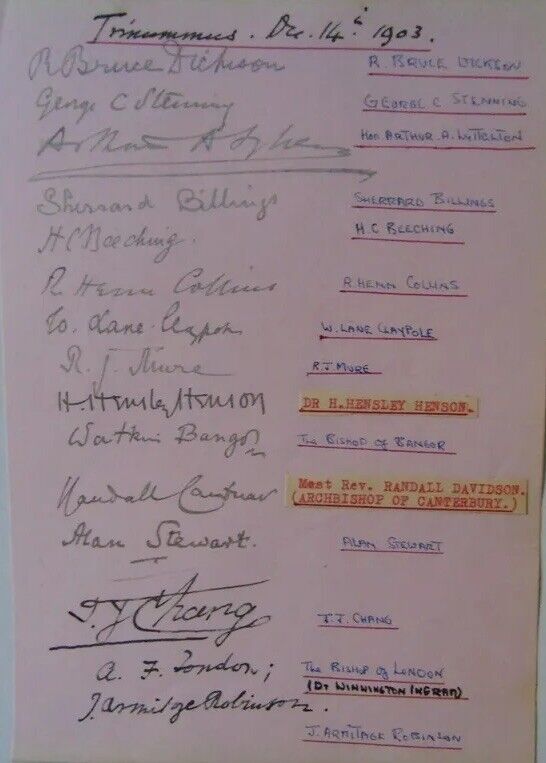
When you click on links to various merchants on this site and make a purchase, this can result in this site earning a commission. Affiliate programs and affiliations include, but are not limited to, the eBay Partner Network.

RARE "British Historical Figures" Signed Album Page (X15):
$699.99
Up for sale a RARE! "British Historical Figures" Hand Signed Album Page. Signers are; R. Bruce Dickson, George C. Stenning, Hon. Arthur A. lyttelton, Sherrard Billings, H.C. Bleeching, R. Henn Collins, W. Lane Claypole, R.J. Mure, Dr H. Hensley Henson, Bishop of Canterbury Randall Davidson, Bishop of Bangor Watkins Williams, Alan Stewart. T.T. Chang, The Bishop of London Arthur Winnington- Ingram and J. Armitage Robinson
ES-3903D
Arthur Temple Lyttelton (7 January 1852 – 19 February 1903) was an Anglican Bishop from the Lyttelton family. After studying at Eton College and Cambridge University, he was ordained as a priest in 1877, and was a curate at St Mary's in Reading. He later served as vicar in Eccles, before being appointed as the third Suffragan Bishop of Southampton. He gave and published a number of lectures relating to his faith, and was the Hulsean Lecturer in 1891. He was also one of eleven members of the Lyttelton family to play first-class cricket. After a short time as a tutor at Keble College, Oxford, he became the first Master of Selwyn College, Cambridge.
Herbert Hensley Henson (8 November 1863 – 27 September 1947) was an Anglican priest, scholar and controversialist. He was Bishop of Hereford, 1918–20 and Bishop of Durham, 1920–39. The son of a zealous member of the Plymouth Brethren, Henson was not allowed to go to school until he was fourteen, and was largely self-educated. He was admitted to the University of Oxford, and gained a first-class degree in 1884. In the same year he was elected as a Fellow of All Souls, where he began to make a reputation as a speaker. He was ordained as a priest in 1888. Feeling a vocation to minister to the urban poor, Henson served in the East End of London and Barking before becoming chaplain of an ancient hospice in Ilford in 1895. In 1900 he was appointed to the high-profile post of vicar of St Margaret's, Abbey. While there, and as Dean of Durham (1913–18), he wrote prolifically and sometimes controversially. The Anglo-Catholic wing of the Church took exception to his liberal theological views, which some regarded as heretical, and sought unsuccessfully in 1917 to block his appointment as Bishop of Hereford. In 1920, after two years in the largely rural diocese of Hereford, Henson returned to Durham as its bishop. The industrial north-east of England, including County Durham, was badly affected by an economic depression. Henson was opposed to strikes, trade unions and socialism, and for a time his forthright expression of his views made him unpopular in the diocese. His opinions about some Church matters changed radically during his career: at first a strong advocate of the Church of England's continued establishment as the country's official church, he came to believe that politicians could not be trusted to legislate properly on ecclesiastical matters, and he espoused the cause of disestablishment. He campaigned against efforts to introduce prohibition, exploitation of foreign workers by British companies, and fascist and Nazi aggression, and supported reform of the divorce laws, a controversial revision of the Book of Common Prayer and ecumenism.
Randall Thomas Davidson, 1st Baron Davidson of Lambeth, GCVO, PC (7 April 1848 – 25 May 1930) was an Anglican priest who was Archbishop of Canterbury from 1903 to 1928. He was the longest-serving holder of the office since the Reformation, and also the first to retire from it. Born in Edinburgh to a Scottish Presbyterian family, Davidson was educated at Harrow School, where he became an Anglican, and at Trinity College, Oxford, where he was largely untouched by the arguments and debates between adherents of of the Church of England. He was ordained in 1874, and, after a brief spell as a curate, he became chaplain and secretary to the Archbishop of Canterbury, Archibald Campbell Tait, in which post he became a confidant of Queen Victoria. He rose through the Church hierarchy, becoming Dean of Windsor (1883), Bishop of Rochester (1891) and Bishop of Winchester (1895). In 1903 he succeeded Frederick Temple as Archbishop of Canterbury, and remained in office until his retirement in November 1928. Davidson was conciliatory by nature, and spent much time throughout his term of office striving to keep the Church together in the face of deep and sometimes acrimonious divisions Under his leadership the Church gained some independence from state control, but his efforts to modernise the Book of Common Prayer were frustrated by Parliament. Though cautious about bringing the Church into domestic party politics, Davidson did not shy away from larger political issues: he played a key role in the passage of the reforming Parliament Act 1911; urged moderation on both sides in the conflict over Irish independence; campaigned against perceived immoral methods of warfare in the First World War and led efforts to resolve the national crisis of the 1926 General Strike. He was a consistent advocate of Christian unity, and worked, often closely, with other religious leaders throughout his primacy. On his retirement he was made a peer; he died at his home in London at the age of 82, eighteen months later.
Watkin Herbert Williams (22 August 1845– 19 November 1944) was Dean of St Asaph from 1892 to 1899. and Bishop of Bangor from 1899 to 1925. Williams was educated at Westminster School[7] and Christ Church, Oxford[8] and ordained in 1871. He was vicar of Bodelwyddan from 1872 to 1892 and Archdeacon of St Asaph from 1889 to 1892. He was a very active Freemason, initiated as a student in 1868 in Oxford's Apollo University Lodge. In Wales he joined the Royal Denbigh Lodge, and became its Worshipful Master in 1883, becoming Provincial Grand Chaplain for North Wales in the same year. He became the Grand Chaplain of the United Grand Lodge of England, the most senior clerical appointment in Freemasonry, in 1898.
Arthur Foley 1858 – 26 May 1946) was Bishop of London from 1901 to 1939. He was born in the rectory at Stanford-on-Teme, Worcestershire, the fourth son of Edward Winnington-Ingram (a Church of England priest and Rector of Stanford) and of Louisa (daughter of Henry Pepys, Bishop of Worcester).[4] Winnington-Ingram was educated at Marlborough College and Keble College, Oxford; he graduated with second-class honours in Literae Humaniores ('Greats') in 1881. His younger brother Edward and his nephew (Edward's son) Arthur were both priests who became Archdeacons of Hereford. Another nephew of his was Reginald Pepys Winnington-Ingram, a scholar of Greek tragedy and Professor of Greek at King's College, London. He was a private tutor in Europe,[8] 1881–84; curate at St Mary's, Shrewsbury, 1884–85; private chaplain to the Bishop of Lichfield, 1885–89; head of Oxford House Settlement, Bethnal Green 1889–97, chaplain to the Archbishop of York, 1889; rector of Bethnal Green, 1895; rural dean of Spitalfields, 1896; and canon of St Paul's Cathedral, 1897.
Joseph Armitage 1858 – 7 May 1933) was a priest in the Church of England and scholar. He was and of Wells (1911–1933). Robinson was born the son of a poor vicar in Keynsham, and was educated at Liverpool College and Christ's College, Cambridge, of which he became a fellow.[1] He was ordained deacon in the Diocese of Ely in 1881, and priest in 1882, when he was Fellow. After a BA degree in 1881, he received his MA degree in 1884, was made Bachelor of Divinity (BD) in 1891, and Doctor of Divinity (DD) in 1896. His first ecclesiastical posting was a domestic chaplain to Joseph Lightfoot, Bishop of Durham from 1883 to 1884, following which he was curate of Great St. Mary, Cambridge until 1886, then a Cambridge Whitehall preacher from 1886 to 1888. That year he was appointed examining chaplain to the Bishop of Bath and Wells and vicar of All Saints' Church, Cambridge where he stayed from 1888 until 1892. He was also a dean of Christ's College, Cambridge, from 1884 to 1890. In 1893 he was appointed Norrisian professor of Divinity at Cambridge university, serving as such until 1899, during which he was also a prebendary of Wells Cathedral. He served as rector of St Margaret's, Westminster 1899–1900, and was appointed a canon of Westminster in 1899, serving until his appointment as dean. In January 1902 he was appointed a Chaplain-in-Ordinary to King Edward VII. The Dean of Westminster, George Granville Bradley, was severely ill throughout most of 1902, but wanted to stay in the position until the coronation of the King in August. Bradley resigned the following month, and the King appointed Robinson Dean of Westminster in early October, followed by a formal installation in Westminster Abbey on 28 October 1902.[5] He served at Westminster until he was appointed Dean of Wells in 1911. It has been suggested that the move to Wells was arranged to avoid friction in the run-up to the coronation of George V. Robinson was Lord High Almoner from 1906 to 1933. As Dean of Wells Robinson enjoyed close links with Downside Abbey. He also critically explored the origins which the Glastonbury Festival had revived attention. A renowned scholar in patristics (he was particularly known for his work on the Lausiac History and for having been the first person to translate into English the newly discovered work by Irenaeus The Demonstration of the Apostolic Preaching), Armitage Robinson was a participant in the bilateral Anglican-Roman Catholic Malines Conversations. He held honorary doctorates from Göttingen (Hon Ph.D., 1893) and Halle (Hon. appointed Knight Commander of the Royal Victorian Order (KCVO) in 1932, and died on 7 May 1933.

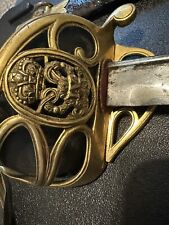
British King William IV 1822 Pattern Infantry Officer’s Sword Rare $950.00
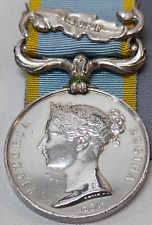
Rare British Army Crimea War Medal - Azoff Royal Navy & Royal Marines $299.27
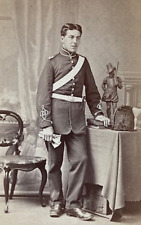
RARE BRITISH ARMY VOLUNTEER ARTILLERY OFFICER 5TH CORPS DURHAM CDV PHOTO c1865 $345.00
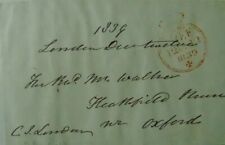
RARE "British Divine" Charles James Blomfield Hand Signed Free Frank Dated 1839 $199.99
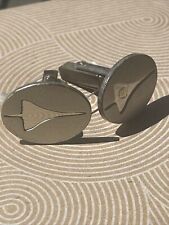
RARE BRITISH AIRWAYS CONCORDE AIRPLANE STERLING SILVER CUFFLINKS $69.95
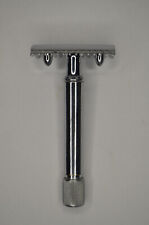
RARE Vintage Gillette British Old Type Single Ring (1906-1908) Safety Razor $260.00
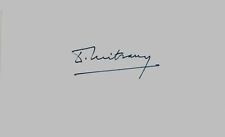
RARE "British Scholar" David Mitrany Signed 3X5 Card $299.99
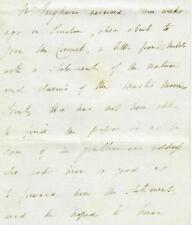
RARE "British Barrister" Robert Ingham Hand Written Letter $149.99
|